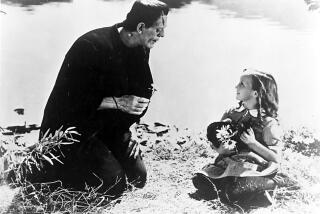‘Birth Dearth’ Defended
- Share via
I confess I am almost, but not quite, dumbstruck by Richard Morris’ irresponsible review of my new book, “The Birth Dearth” (The Book Review, Aug. 2).
He maintains that I subscribe to theories of “race suicide,” “race decadence,” and a “Yellow Peril.” That is a serious, even incendiary, charge on a sensitive issue; it should not be tossed around lightly; it is racial McCarthyism; it is not true, nor close to the truth.
“The Birth Dearth” is about the very low birth and fertility rates in America and in all the other modern democratic nations. As described in “The Birth Dearth,” one of the nations in this grouping is Japan. It has very low fertility rates. I maintain that the Japanese will face serious economic problems because of their low fertility and rapidly aging population. I assume Morris is aware that Japan is not a “white” country. Isn’t it strange that I--concerned about a Yellow Peril, to hear Morris tell it--would be concerned about low birth rates in Japan?
More to the point, I am very concerned about very low fertility rates in another nation, one that has about 60 million people who are not of white European descent. That nation is the United States. I make it quite clear in “The Birth Dearth” that very low fertility rates are a middle-class phenomenon that runs across the entire racial and ethnic spectrum in America: white, black, Hispanic. In fact, I point out that black middle-class women have lower fertility rates than white middle-class women.
On a policy level, the real issue of racial and ethnic composition in America boils down to one question: Shall we increase or decrease the number of legal immigrants into the United States? In earlier times, 80% of our immigrants were of white European ancestry. Today, 80% are not of white European ancestry; they are mostly Hispanic, Asian, black and Middle-Eastern. In “The Birth Dearth,” I come out for higher levels of legal immigration. That is not the position one would normally associate with a man concerned about “race suicide.” Curiously, most of the people who claim to hear racial overtones in the book--typically from the ranks of the environmental activists--are in favor of lowering the rates of immigration. Does Morris think they are racists?
Morris also indicates that my views about Western culture are “frightening.” Morris actually thinks that I think Western culture is--get this--”beneficial.” I think he thinks I am a cultural chauvinist. I am. I plead guilty. I make the point in “The Birth Dearth” that over the last four decades, the culture of the Western alliance, led by the United States, has been good for us and good for the world. This culture has provided political liberty, stunning prosperity and astonishing gains in science and technology. It is being emulated in many parts of the world. In the Third World, it has yielded sharp increases in life expectancy, literacy, nutrition, communication and transportation.
I believe that this culture is worthy of defense, preservation and non-coercive extension. Alas, sometimes this requires military strength, although Morris rather cavalierly dismisses the idea. Just imagine, spending money for an aircraft carrier.
A flourishing, beneficial Western culture will also likely require a population that is not ever-diminishing. But today, fertility rates in the Western nations are at levels that would yield populations that get smaller and smaller. One reason that I wrote “The Birth Dearth” was to alert us about this situation. That doesn’t strike me as racist reasoning.
BEN J. WATTENBERG
Senior Fellow
American Enterprise Institute
More to Read
Sign up for our Book Club newsletter
Get the latest news, events and more from the Los Angeles Times Book Club, and help us get L.A. reading and talking.
You may occasionally receive promotional content from the Los Angeles Times.








